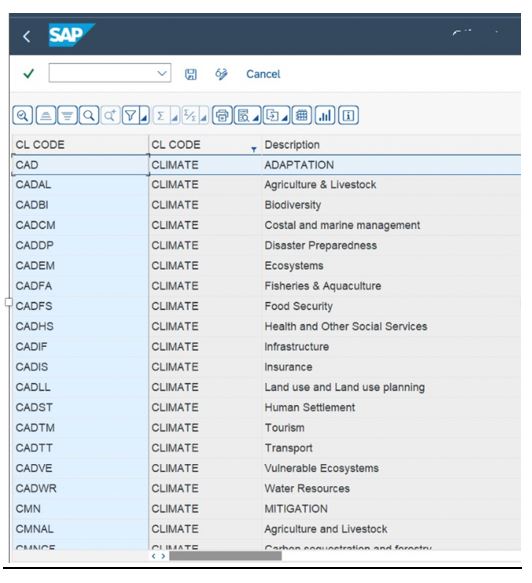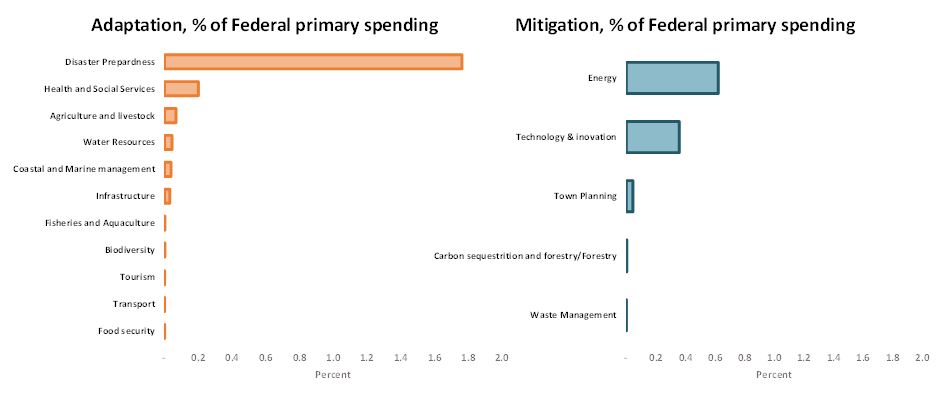Pakistan, a country highly vulnerable to climate change, faces significant challenges in addressing the impacts of extreme weather events and natural disasters. The 2010 floods affected 20 million people and caused $43 billion in damages, while the 2022 floods displaced 8 million individuals and inflicted $15 billion in economic losses.
As the nation grapples with climate change impacts, climate budget tagging has emerged as a useful tool to enhance transparency, accountability, and resource allocation. Tagging may be defined as the process of systematically identifying, tracking, and categorizing expenditures related to climate change objectives. It has particular significance for Pakistan considering the desire to increase access to international climate finance. Lending institutions require clear expenditure tracking before approving funds.
During the previous decade, attempts were made to climate tag federal and some provincial government spending – but this resulted in one-off exercises that failed to stick. This reflected a common problem when introducing budget tagging. Whilst it is comparatively easy for consultants to look backwards and tag historical spending, it is difficult to build the confidence of government officials to decide how to tag new activities and projects in future budgets, after the consultants have left.
Learning from these experiences, in late 2023 it was decided to place particular emphasis on getting strong buy-in and leadership from the Ministry of Finance and the Controller of General Accounts. Furthermore, the Ministry of Climate Change (MOCC) was also engaged from the start to align budget tagging with the climate change policies, including the Pakistan’s National Climate Change Policy. The categories and weighting for climate tagging were approved by the MOCC. These first steps brought all the key stakeholders together, helping to develop consensus and ownership. Climate tagging was then explained to hundreds of officials across the federal government in workshops and committees.
Another key to success was the development of an IFMIS module in early 2024 to create a more structured approach for tagging (Figure 1). All the tagging done by the consultants was sent back to each ministry for review and approval by their officials and management. These activities helped embed tagging into Pakistan’s financial systems, including the Budget Call Circular, federal budget books, and the Minister of Finance’s budget speech. The climate tagging exercise ran together with gender and disaster budget tagging, adding additional richness to the data.
Figure 1 - A module was added to Pakistan's IFMIS to help with future tagging

Consequently, as of today, the federal Ministry of Finance now routinely tags a significant proportion of spending in its annual budget. The level of granularity opens the door for further analysis, shedding light on interesting questions such as:
- Where is Pakistan directing its spending to mitigate the impact of climate change?
- Which measures to adapt technologies and infrastructure projects to climate change are growing fastest?
- What is the relationship between funds budgeted for adaptation and mitigation and the money actually spent in these two areas?
- Which mitigation policies are most cost effective as measured in $ per ton of CO2e abated?
- How much money has Pakistan spent on awareness raising and education related to climate change during the last three years?
This analysis in turn will help strengthen the evidence base to support future environmental and climate policy.
The results show that climate related spending of the federal government is small but growing (Figure 2). Adaptation spending, most of which is related to disaster preparedness, makes up the bulk of the spending. Mitigation spending accounts for a third, most of which is investment in clean energy, and the remainder is classified as “Other Supporting Areas” that includes capacity building and awareness raising.
Figure 2 - Climate related spending (actual outturns) FY2022/23

Highlighting some of the political complexities of climate budget tagging, negative expenditures were not included in the exercise, a potentially missed opportunity given that Pakistan is making great efforts to reduce fossil fuel subsidies. Something else for the authorities to consider is the risk of “green-washing” - the exaggeration of the climate relevance of programs and projects. There is also a need for climate budget tagging of provincial governments as major expenditures related to adaptation are often under provincial budgets.
To conclude, climate budget tagging has the strongest impact if applied consistently in all stages of the budget cycle. Pakistan is making good progress towards achieving this goal. The path for climate-responsive budgeting remains challenging, but Pakistan’s experience shows that starting small, investing in institutional systems, and building ownership are key to sustainable climate budget tagging.




